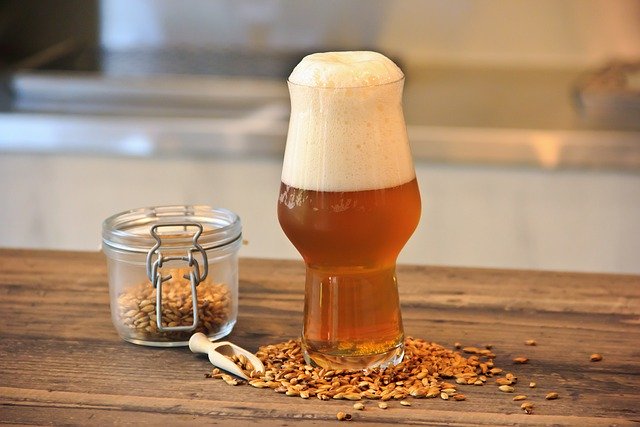Full-Bodied, Sweet & Fruity Ale
Ale is basically a type of beer which uses the warm fermentation process so as to give a full-bodied, sweet and fruity taste to the drink. Typically, a bittering agent is added to Ale in order to balance the sweetness of malt and which also acts as a preservative at the same time.
Original Ale was made bitter with gruit boiled in wort prior to fermentation but has subsequently replaced by hops. Ale today is typically fermented at temperatures ranging between 15 to 24 degrees centigrade.
Full-Bodied, Sweet & Fruity Ale
Varieties of Ale
There are many varieties of Ale, some of which are enumerated below.
- Brown Ale – Brown Ale is lightly hopped and mildly flavored with a nutty taste. Usually containing between 3 to 5 percent alcohol, Brown Ale is quite sweet and first appeared in early 1900s. Some of the most popular Brown Ales are Manns Brown Ale, Newcastle Brown Ale and Pete’s Wicked Ale which is much hoppy.
- Pale Ale – Pale Ale beer is made from malt dried with coke. Customers often refer it as bitter beer while breweries designate it as pale Ale. However, cask beers are usually identified as bitter beer and bottled beers as Pale Ale.
- India Pale Ale – When Bow Brewery in England exported Pale Ale to India during the nineteenth century, it benefited immensely from the duration of voyage and was highly regarded by consumers. Extra hops are added to India Pale Ale which acts as a natural preservative.
- Golden Ale – Quite similar to Pale Ale with notable differences, Golden Ale was originally developed for younger people. Golden Ale is paler and brewed with lager or low-temperature ale malts. Alcohol strength of Golden Ale ranges between 3.5 to 5.3 percent and is served at colder temperatures.
- Scotch Ale – Scotland produces a full range of ales which are malty, strong and amber to dark red in color. Malt used for Scotch Ale are slightly caramelized in order to impart toffee notes. Scotch Ale is sweeter, darker and less hoppy than English beers.
- Mild Ale – Quite opposite of Old Ale, Mild Ale is not aged. While Mild Ale can be any color or strength and typically with 3 to 3.5 percent alcohol, it is most often dark brown and low in strength. The best example of light colored Mild Ale is Bank’s Mild.
- Burton Ale – Burton Ale is dark, strong and sweet and is quite often used as stock ale for blending younger beers. Good examples of Burton Ale are Bass No. 1 and Fullers 1845 Celebration Ale which is a modern example.
- Old Ale – Originally Old Ale was a strong beer which was traditionally kept for about a year in order to gain sharp acetic flavors. However, Old Ale now refers to medium-strong dark beers which are treated so as to resemble traditional Old Ale.
- Belgian Ale – There are a wide variety of specialty Ales which are produced in Belgium. However, all Belgian Ales are high in alcohol content but relatively light in body. Belgian ale is more digestible due to the fact that it is substituted with sucrose which boosts up alcohol without addition of any un-fermentable material to finished product.
